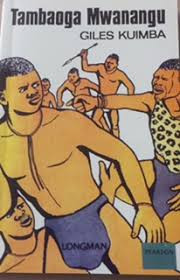
ECONOMIST and mining experts have flagged the rampant leakages plaguing Zimbabwe’s mining sector, arguing that the government has shown little appetite for regulating the industry, allowing for widespread corruption and exploitation.
In a X (formerly Twitter) Space hosted by NewsDay in partnership with the Information for Development Trust (IDT) under the topic Unpacking Leakages in Zimbabwe’s Mining Sector, panellists raised concerns about the government’s lack of action and the negative impact on communities.
The government said the country is suffering from mineral leakages as a result of declining planned supply to the Fidelity Gold Refinery (FGR).
Smuggling along the porous borders is reportedly costing Zimbabwe up to US$1 billion in lost income, according to last week’s report by the Parliamentary Portfolio Committee on Defence, Home Affairs, and Security Services. Leaks occur in all minerals, with the gold industry leading the way.
Farai Maguwu, the Centre for Natural Resource Governance (CNRG) executive director, highlighted the looting of minerals by international criminals, citing the Marange diamond fields as a prime example.
Despite the discovery of vast diamond resources, the local community remains impoverished and underdeveloped.
“I am worried about how mineral looting is affecting communities where it is being mined. Some companies only come into communities for extraction of minerals. They do not develop the community or give back,” Maguwu said.
“For example, in Marange where diamonds were discovered, the community is not developed despite having diamonds.
- News in depth: ‘Cross-border raids’: Zimbabwean illegal miners wreak havoc in Botswana, SA
- News in depth: Mnangagwa’s push for $12 billion mining industry imperils communities
- News in depth: British investor digs in over Marange diamond concession saga
- News in depth: ‘Cross-border raids’: Zimbabwean illegal miners wreak havoc in Botswana, SA
Keep Reading
“Zimbabwe at the end of the day has little or nothing to gain from its own natural resources, the criminality in the diamond sector is shocking.”
He criticised government’s failure to address these issues, emphasising the need for greater transparency and accountability.
“The power of the people can() push the government to change. However, the population of Zimbabwe is docile and passive, who focus on trivial issues and ignore bread and butter issues.
“Zimbabweans are not asking relevant questions. There is need for accountability and transparency in the quality and size of diamond stones we are producing,” he said.
Chenayi Mutambasere, a development economist from Africa Centre for Economic Justice, echoed Maguwu’s concerns, describing the mining environment as a cartel characterised by secrecy and lack of transparency.
She pointed out the disparity between investors and communities, with the former benefiting disproportionately from the country’s mineral wealth.
Mutambasere also highlighted the need for stronger mining laws and regulations to ensure accountability and prevent illicit flows of minerals.
“The mining environment in Zimbabwe is a cartel, as there is no transparency and accountability. There are a lot of deals made in the shadows which somehow disadvantage the Zimbabweans.
“Zimbabwe has over 40 tradable minerals, while Botswana has less than that, but is making sense from that,” she said.
“In Zimbabwe, we do not have ability to trace our minerals and we are not seeing much even in terms of laws.
“We have not ratified our mining laws to reflect accountability and bring order in the mining sector. There is a discrepancy on the quantum of gold declared, (and the) RBZ [Reserve Bank of Zimbabwe] does provide information.”
Tawanda Majoni, the director for IDT, emphasised the importance of access to information in combating corruption, criticising the government’s reluctance to disclose information about gold trade, despite constitutional guarantees of access to public information.
He called for greater transparency and accountability in the mining sector, urging citizens and journalists to demand information and hold the government accountable.
“Access to information is critical, but there is impunity around access to information, while section 62 of the Constitution grants us access to information,” Majoni said.
“The RBZ has information on who deals in gold, how much gold gets into Fidelity Gold Refinery and who brings what amounts of gold, but that information will never be provided to us.
“There is a discrepancy of what is produced and what is declared, therefore, people need to be empowered to demand information of public interest, especially journalists.”
He said to create a culture where information is demanded and the media is empowered to do so, journalists should have the authority to demand information.
“Journalists need to be empowered to demand information, as IDT we want to build a culture of demanding information and empowering the media to demand the information.
“There are many grey areas on some reports and some stories being published by the media. There is a need to go out and track the gold that goes out from Zimbabwe.”










